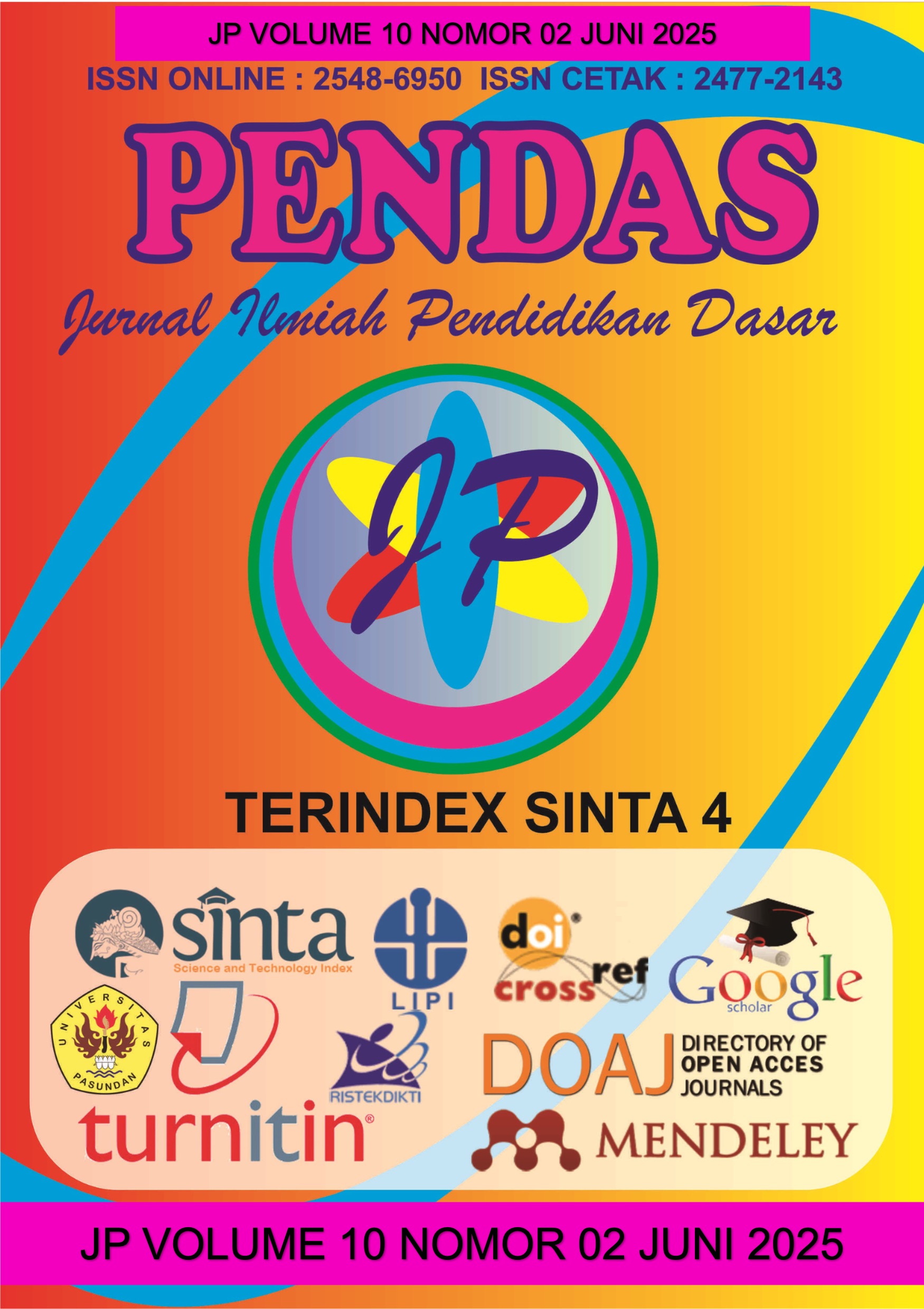MENINGKATKAN HASIL BELAJAR MATEMATIKA SISWA MELALUI PENDEKATAN REALISTIC MATHEMATICS EDUCATION (RME) PADA KELAS V SDN SEMERU 1 TAHUN AJARAN 2024/2025
DOI:
https://doi.org/10.23969/jp.v10i02.26810Keywords:
Realistic Mathematics Education, Learning Outcome, MathematicsAbstract
Education is a crucial effort to develop individual potential through a conducive learning environment. However, mathematics is often perceived as difficult and irrelevant due to its abstract nature. To address this, the Realistic Mathematics Education (RME) approach is utilized, aiming to connect mathematical concepts with students' real-world experiences. This study aims to investigate the effect of implementing RME on the conceptual understanding and learning outcomes of fifth-grade students at SDN Semeru 1. The research employs Classroom Action Research (CAR) following the Kemmis and McTaggart model in two cycles. The subjects consist of 34 students, and the object of study is the mathematics learning outcomes measured through pre-tests, post-test 1, and post-test 2. The results reveal an increase in the students’ average score from 75.33 (pre-test) to 86.71 (post-test 2), along with an improvement in mastery learning percentage from 64.71% to 94.12%. These findings demonstrate that the RME approach is effective in enhancing students’ conceptual understanding and mathematics learning outcomes by utilizing real-life contexts, providing intensive teacher guidance, and conducting structured discussions. The implementation of RME is expected to offer a contextual, enjoyable, and meaningful mathematics learning experience for students.
Downloads
References
zizah, A. (2021). The importance of
classroom action research for
teachers in learning. Auladuna:
Journal of Elementary School
Teacher Education Study
Program, 3(1), 15–22.
Fahira, A. (2021). The effect of the
STEM approach assisted by
Microsoft Mathematics on
mathematical conceptual
understanding in terms of
student personality types.
Jurnal Ilmiah Pendidikan
Matematika AL-QALASADI,
5(1), 44–51.
Fahrezi, G., & Susanti, S. (2021).
Development of contextual flip
book teaching materials based
on Android on inventory
accounting material. Educatio,
16(1), 58–70.
Hasan, et al. (2020). The effect of the
Realistic Mathematics
Education (RME) approach on
mathematics learning
outcomes in terms of learning
Kiki Patmala, & Putri Yulia. (2022).
Analysis of students'
mathematical concept
understanding abilities at
Madrasah Aliyah on
trigonometry material. Venn:
Journal of Sustainable
Innovation on Education,
Mathematics and Natural
Sciences, 2(2), 62–70.
Machali, I. (2022). How to conduct
classroom action research for
teachers? IJAR: Indonesian
Journal of Action Research,
1(2), 315–327.
Rukinah. (2023). Improving the ability
to calculate addition and
subtraction through the
Problem Based Learning
strategy: (Classroom action
research on second grade
students at SDN Kasomalang
VIII, Kasomalang District,
academic year 2022/2023).
JPG: Teacher Research
Journal FKIP Universitas
Subang, 6(1), 88–96.
Downloads
Published
Issue
Section
License
Copyright (c) 2025 Pendas : Jurnal Ilmiah Pendidikan Dasar

This work is licensed under a Creative Commons Attribution 4.0 International License.














































